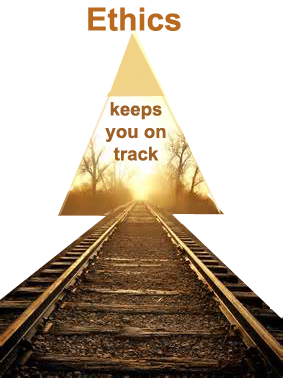TEN350 The waveform that hijacked the IEC lightning standards
ETHICS and the IEC

The subject of Ethics can be difficult to address because people have so many different ideas about what it means. To some it's synonymous with punishment. To others, it's merely the adherence to moral or traditional customs. For others it's all about "right conduct."
As we mean it here, ethics refers to decisions made by a standards-writer which further not only his own well-being and that of his company, but also benefit the IEC, the electrical and electronics industry, those professionals working in it, the customers who use his standards, and the earth as a whole. An "ethical" action would be an action that provided the most benefit to all those areas and did the least harm to them.
Passing a standard that was advantageous to one's company and made one rich but was detrimental to customers worldwide, confusing to fellow members of the professional community and damaging to the reputation of the IEC would be an example of an unethical action.
ETHICS: keeping organizations on the rails
Almost every large organization has developed a code of ethics to guide its policy and conduct -- a tool to help keep it on the rails. Universities, corporations, even government agencies have them. For example, the first few clauses in the by-laws of the American National Standards Institute (ANSI) require its standards to 1) benefit the public health, safety, welfare and environment; 2) facilitate domestic and international trade, commerce, communications and understanding; 3) assure that the interests of the public have appropriate protection, participation and representation; and 4) require standards to be based on consensus. CIGRE's US National Committee has an ethics program which clarifies the subject of "conflict of interest." It doesn't take much of an imagination to appreciate that big trouble would follow major departures from these guidelines.
ETHICS AND THE IEC
This website has uncovered potential ethics abuses within the IEC TC 81. As the world's pre-eminent standards organization, the IEC should set an example of high ethical conduct in all its areas. In many cases it no doubt does. But strangely, as we searched IEC documents to find the ethical codes or guidelines that had been violated here, we could not find any reference to ethics. None whatsoever. When we asked a high-ranking IEC official, he couldn't point to any either. A global search of the IEC website disclosed a Code of Ethics for IECEE (product safety certification organization) but no mention of ethics as regards standards development. We can only conclude that if such guidelines exist, they are buried far too deeply to be of much use.
RECOMMENDATION FOR ETHICS, TRANSPARENCY, AND OVERSIGHT
Ethics isn't just a "nice idea" for a standards organization like IEC. It's vital. Elsewhere in this web the possibility is called to attention that the implementation of the IEC 62305's LPZ system may violate European Union Competition Law. There is also the unfortunate practice whereby IEC standards refuse to disclose the names and connections of those who wrote them.
Standards need transparency and also need oversight.
We suggest that the IEC drafts an ethics guideline for standards writers and establishes an ethics committee to police those guidelines.
Back to IEC standards page